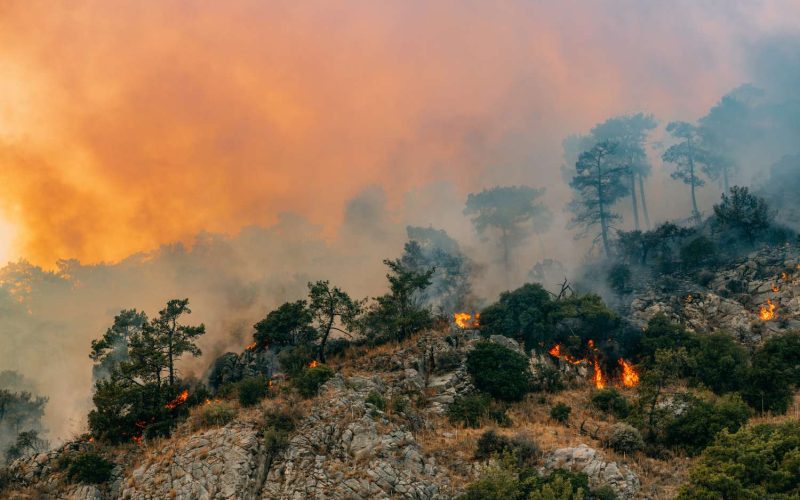Introduction
In a world facing the relentless challenges of climate change, our most vulnerable population – children – emerges as the unexpected protagonists in this unfolding narrative. Climate change, with its surging temperatures, erratic weather patterns, and escalating pollution levels, casts a shadow over the health and well-being of our younger generation. This article delves into the vital relationship between climate change and children’s health, guided by the expertise of Dr. Jack Maypole, a distinguished pediatrician known for his deep insights into child health, community well-being, and medical education.
Understanding the Urgency: Climate Change’s Ripple Effect
Climate change transcends mere environmental shifts; it sends ripples through our ecosystems, economies, and, most critically, our health. Dr. Jack Maypole emphasizes that the impact on children’s health is an urgent concern that demands immediate attention. Rising temperatures exacerbate air pollution, leading to increased respiratory issues among children. Additionally, the prevalence of extreme weather events disrupts health services, compromises access to clean water and nutrition, and triggers mental health challenges.
Unveiling the Vulnerabilities: Children on the Frontline
Children aren’t just passive recipients of climate change’s consequences – they are at the forefront of its impacts. Dr. Maypole’s expertise elucidates how children, due to their developing bodies and unique behavior patterns, are more susceptible to the health risks posed by climate change. Increased outdoor activity exposes them to higher levels of air pollutants, resulting in a surge of pediatric asthma cases. Their smaller bodies make them more susceptible to dehydration and heat stress during heatwaves. Furthermore, their immature immune systems render them less capable of fighting off infectious diseases spread by changing disease vectors.

A Glimpse into the Future: Projections and Predictions
Peering into the future, projections reveal a grim reality if climate change remains unchecked. Dr. Maypole’s insights predict an escalation in respiratory diseases, such as asthma, due to heightened pollen levels and air pollution. Vector-borne diseases, like malaria and dengue fever, could expand their reach into new regions, exposing children to new health threats. Moreover, the mental health toll cannot be ignored, as the constant specter of climate-related disasters contributes to anxiety, depression, and trauma among children.
Solutions in Action: Nurturing Resilience
While the challenges are daunting, Dr. Maypole underscores that action is not futile. Communities, governments, and individuals can collaborate to build resilience against climate change’s health impacts. Community initiatives that enhance green spaces, promote clean energy, and advocate for sustainable transportation can mitigate air pollution and provide children with healthier environments. Policy changes that prioritize climate-conscious urban planning and pollution reduction can also contribute to children’s well-being. Moreover, Dr. Maypole stresses that parents and caregivers have a vital role to play in fostering resilience by educating children about climate change, advocating for sustainable practices, and promoting mental well-being.
Parental Role: Empowering Guardians for Change
Parents and guardians possess the power to effect meaningful change in the fight against climate change’s impact on children’s health. Dr. Maypole emphasizes the importance of informed decision-making, lifestyle adjustments, and advocacy efforts. By incorporating climate-friendly habits into daily routines, such as reducing plastic use and conserving water, families can create a positive impact. Additionally, parents can empower their children to become environmental stewards, instilling values that will shape their actions as they grow.
Dr. Jack Maypole: A Beacon of Expertise
At the heart of this article’s insights lies the esteemed Dr. Jack Maypole, a beacon of expertise in the realm of child health and community well-being. As a pediatrician and educator, Dr. Maypole’s impressive credentials include a history of research, advocacy, and practical experience. His expertise uniquely positions him to bridge the gap between scientific understanding and actionable steps, making his insights invaluable for comprehending and combating climate change’s impact on children.
Bridging Science and Action: Expert Perspectives
Dr. Maypole’s dedication to bridging scientific understanding and actionable solutions is evident through his contributions to policies and practices that prioritize children’s health in a changing climate. His insights extend beyond research papers to practical applications in communities and medical institutions. By drawing from his expertise, individuals and organizations can take tangible steps toward safeguarding the well-being of children now and in the future.
Conclusion
In the intersection of climate change and children’s health lies a crossroads of urgency, vulnerability, and opportunity. Dr. Jack Maypole’s insights provide a compelling narrative that ignites a call to action. As temperatures rise and the world shifts, it is our responsibility to safeguard the well-being of the next generation. By heeding Dr. Maypole’s guidance, we can collectively take steps, big and small, to ensure a healthier, more resilient world for our children. The impact of climate change on children’s health is a complex issue, but with expert guidance and a shared commitment, we can strive for a brighter future.












